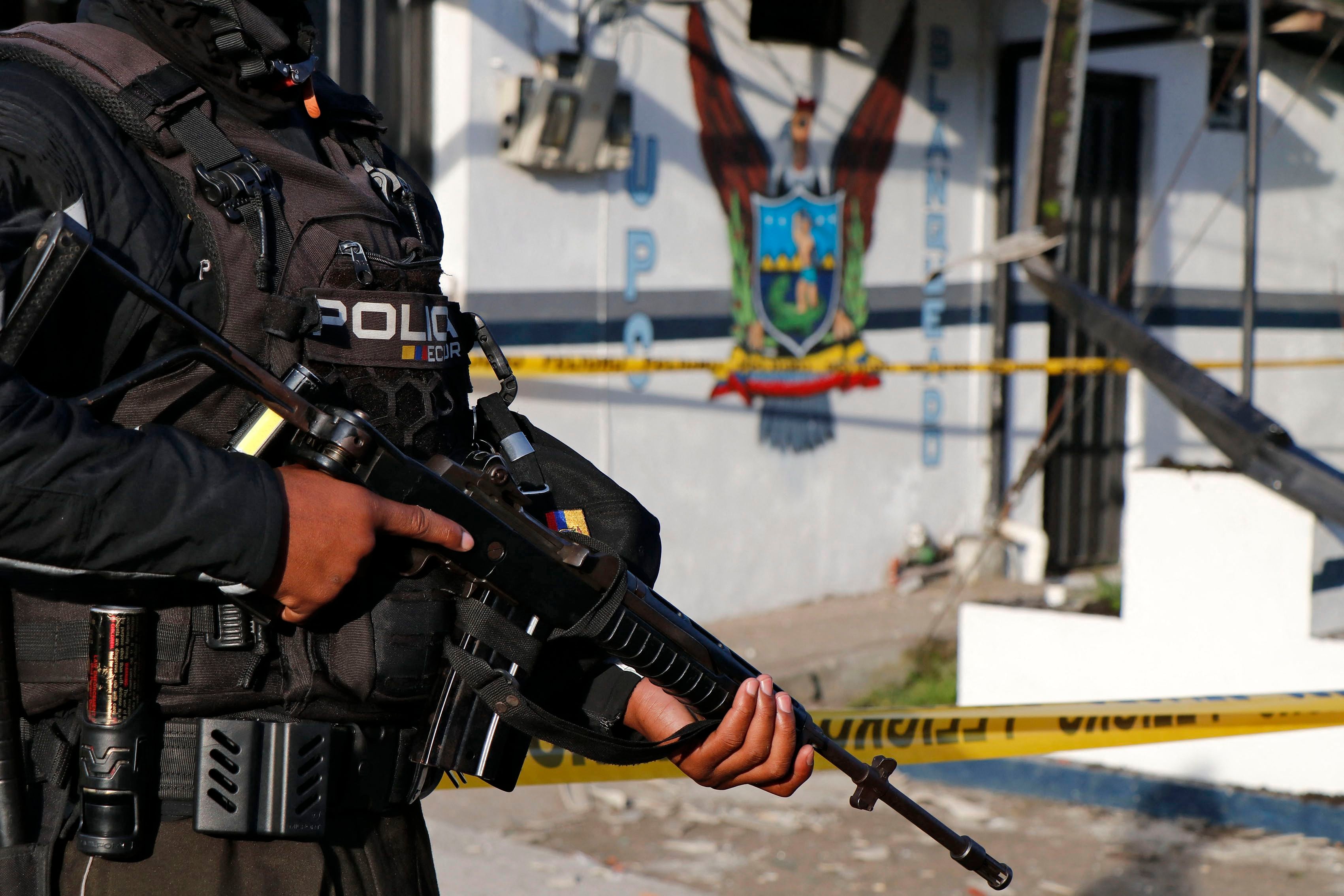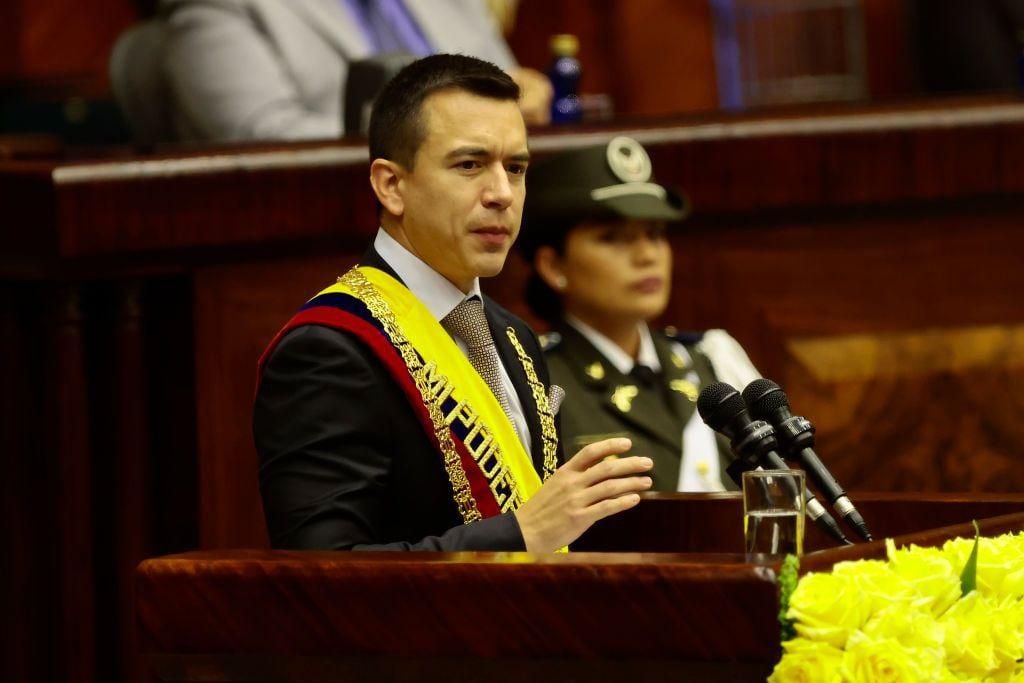Ecuador continues its efforts to control the spiral of violence that worsened this week with riots, kidnappings of police officers, explosions and an armed attack on a television channel, while countries in the region observe the crisis with concern. Peru, which shares a border of more than 1,500 km with that nation, confirmed that none of our compatriots in its northern neighbor were affected by the situation.
TO LOOK: Chaos and violence in Ecuador: why is the scenario “much more serious” now than in the past?
“At the moment, thank God, there are no damages or injuries to regret, there have been no injuries or major damages, even among the Peruvian prison population”, Alberto Farje, general director of Peruvian Communities Abroad and Consular Affairs, who details that there are 126 Peruvian prisoners in Ecuadorian prisons.
The Itamaraty spokesperson explains that most communications with our consulates in Ecuador – located in Quito, Guayaquil, Machala, Loja and Cuenca – have been concerned about the situation of violence in the country.
“Our response has been reassurance and providing information because there are so many people calling to inquire about transfer plans. On Wednesday there was a group of 22 tourists who were affected in their transport, but our consulate in Guayaquil reacted very quickly and transferred them to the border”, he highlights.
After efforts by @CancilleriaPeru, through our Consulate General in Guayaquil, 22 compatriots stranded in Ecuador left, by land, towards Peruvian territory. Our network of consulates in ???????? remains alert to support our compatriots. pic.twitter.com/cXrrfVUc62
—CancilleriaPeru???????? (@CancilleriaPeru) January 11, 2024
The official highlights that the border between Peru and Ecuador has not been closed and that transport lines operate normally this Thursday.
He adds that although there are no major needs for now, Peruvian consulates “remain on alert and anticipating any situation that could worsen in order to provide any type of assistance”.
Peru also remains on alert in the face of Ecuadorian President Daniel Noboa’s announcement to deport 1,500 foreigners detained in prisons in his country, including Peruvians, a measure that is part of the war he has declared against criminal organizations. that in recent years they have had control of the country’s prisons.
In this regard, Farje highlighted that it is still premature to establish a position “because there are political statements and the details of the proposal still need to be known”.
“Peru and Ecuador have a prisoner transfer agreement, but this involves court order processes, party requests, etc. and we still don’t know exactly what the proposal is. What I must emphasize is that any situation will be coordinated by both countries. Right now, cooperation between both authorities is at the highest level,” he said.

President Dina Boluarte stated this Thursday that the eventual deportation of Peruvian prisoners from Ecuadorian prisons must follow “due process” so as not to put the security of our country at risk. “If that happened, they would obviously go to prison, it wouldn’t put security in a serious situation” in Peru, she told the press.
Our country warned that if Ecuador sends imprisoned Peruvians to its prisons, it will return the 162 Ecuadorians serving sentences in local prisons.
“If by agreement between the authorities it is decided to return them to the convicts, we have 162 (Ecuadorian prisoners), then it will be a reciprocal issue… and therefore will not create concerns about overcrowding,” said the chief. from the agency that manages prisons, Javier Llaque, to the RPP.

Both countries are closely following the discovery of Peruvian explosives and ammunition in the possession of Ecuadorian criminals, a fact that is being investigated by authorities in both countries.
“It is not the responsibility of Itamaraty, but what I can say is what was said to all citizens in all media. There is naturally an in-depth investigation to detect the origin of these weapons and find out their journey and how they were obtained. More than this cannot be pointed out,” said Farje.
Source: Elcomercio
I am Jack Morton and I work in 24 News Recorder. I mostly cover world news and I have also authored 24 news recorder. I find this work highly interesting and it allows me to keep up with current events happening around the world.

:quality(75)/cloudfront-us-east-1.images.arcpublishing.com/elcomercio/4NMAFF5ULBHNPI5GZIZDXHPWAA.jpg)


:quality(75)/cloudfront-us-east-1.images.arcpublishing.com/elcomercio/ZPRRVLFLKFAELKZ2AGPPODYZSY.jpg)


